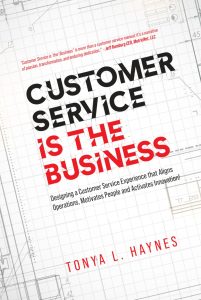
Building Loyalty Through Tailored Solutions And Services
In today’s competitive business landscape, building and maintaining customer loyalty is crucial for long-term success. Read More
Understanding the Power of Personalization
Personalization is more than just a trend; it’s a powerful strategy for building strong, lasting customer relationships. When customers feel valued and understood, they are more likely to remain loyal to your brand. Tailoring solutions and services to individual needs and preferences not only enhances the customer experience but also sets your business apart from competitors. Personalized interactions make customers feel special and respected, increasing their likelihood of returning to your business.
Customizing Offerings to Meet Specific Needs
One of the most effective ways to build loyalty is by offering tailored solutions that address the specific needs of your customers. For example, in the retail industry, many companies have successfully implemented personalized shopping experiences. Online retailers like Amazon use sophisticated algorithms to recommend products based on customers’ browsing and purchase history. This personalized approach not only enhances the shopping experience but also increases the chances of repeat purchases.
In the service industry, businesses can create tailored packages or solutions that cater to individual preferences. For instance, a travel agency can offer customized vacation packages based on a client’s interests, previous travel history, and budget. By delivering solutions that are specifically designed to meet each customer’s unique needs, you demonstrate that you value their business and are committed to providing exceptional service.
Offering Personalized Customer Service
Exceptional customer service is a cornerstone of loyalty. Tailoring your customer service approach to each individual can make a significant difference in how customers perceive your brand. Train your team to actively listen to customer needs and preferences, and empower them to make decisions that will enhance the customer experience.
Consider how companies like Zappos have set the bar high with their customer service. Zappos empowers its customer service representatives to go above and beyond, such as sending free replacements or offering personalized discounts to resolve issues. This level of personalized service creates a strong emotional connection with customers, leading to increased loyalty and positive reviews.
Implementing Customer Feedback
Customer feedback is invaluable for tailoring your solutions and services. Actively seek input from your customers and use their feedback to make informed improvements. Surveys, reviews, and direct interactions can provide insights into what your customers truly want and how you can better meet their needs.
For example, Starbucks regularly gathers customer feedback through its app and in-store surveys. The company uses this information to make adjustments to its menu, introduce new products, and enhance the overall customer experience. By showing customers that their opinions matter and are used to drive improvements, you build trust and loyalty.
Creating Loyalty Programs with Personal Touches
Loyalty programs are a proven way to encourage repeat business and reward your most valuable customers. To maximize the effectiveness of your loyalty program, personalize rewards and incentives based on customer preferences and behavior. Instead of offering generic discounts, tailor rewards to individual interests, such as exclusive access to new products or personalized offers.
Sephora’s Beauty Insider program is a great example of a successful loyalty program. The program offers tiered rewards based on customers’ spending and engagement, and provides personalized recommendations and early access to products. By aligning rewards with customer preferences, Sephora enhances the value of its program and strengthens customer loyalty.
Building Emotional Connections
Emotional connections play a crucial role in customer loyalty. Creating a sense of belonging and community around your brand can foster deeper relationships with your customers. Share your brand’s story, values, and mission, and engage with customers on a personal level.
Patagonia, an outdoor clothing company, has successfully built emotional connections with its customers by aligning its brand with environmental sustainability and social responsibility. The company’s commitment to these values resonates with customers, leading to strong brand loyalty and advocacy. By connecting with customers on a deeper level, you can inspire loyalty and create a loyal customer base that is passionate about your brand.
Continuously Enhancing the Customer Experience
Building loyalty is an ongoing process that requires continuous effort and improvement. Regularly evaluate and enhance your customer experience to ensure that it remains relevant and valuable. Stay informed about industry trends, customer preferences, and emerging technologies that can help you deliver personalized solutions and services.
For instance, Netflix continuously evolves its streaming platform based on user feedback and viewing habits. The company invests in advanced algorithms to provide personalized content recommendations and create an engaging user experience. By staying ahead of customer expectations and adapting to their needs, Netflix maintains high levels of customer satisfaction and loyalty.
Conclusion
Building a loyal customer base through tailored solutions and services is a powerful strategy for achieving business success. By customizing your offerings, providing personalized customer service, implementing feedback, creating impactful loyalty programs, and fostering emotional connections, you can cultivate strong relationships with your customers. The result is not only increased loyalty but also enhanced customer satisfaction, positive word-of-mouth, and sustained business growth. Embrace the power of personalization and make your customers feel valued, and you’ll unlock the potential for lasting success and a thriving, loyal customer base.





